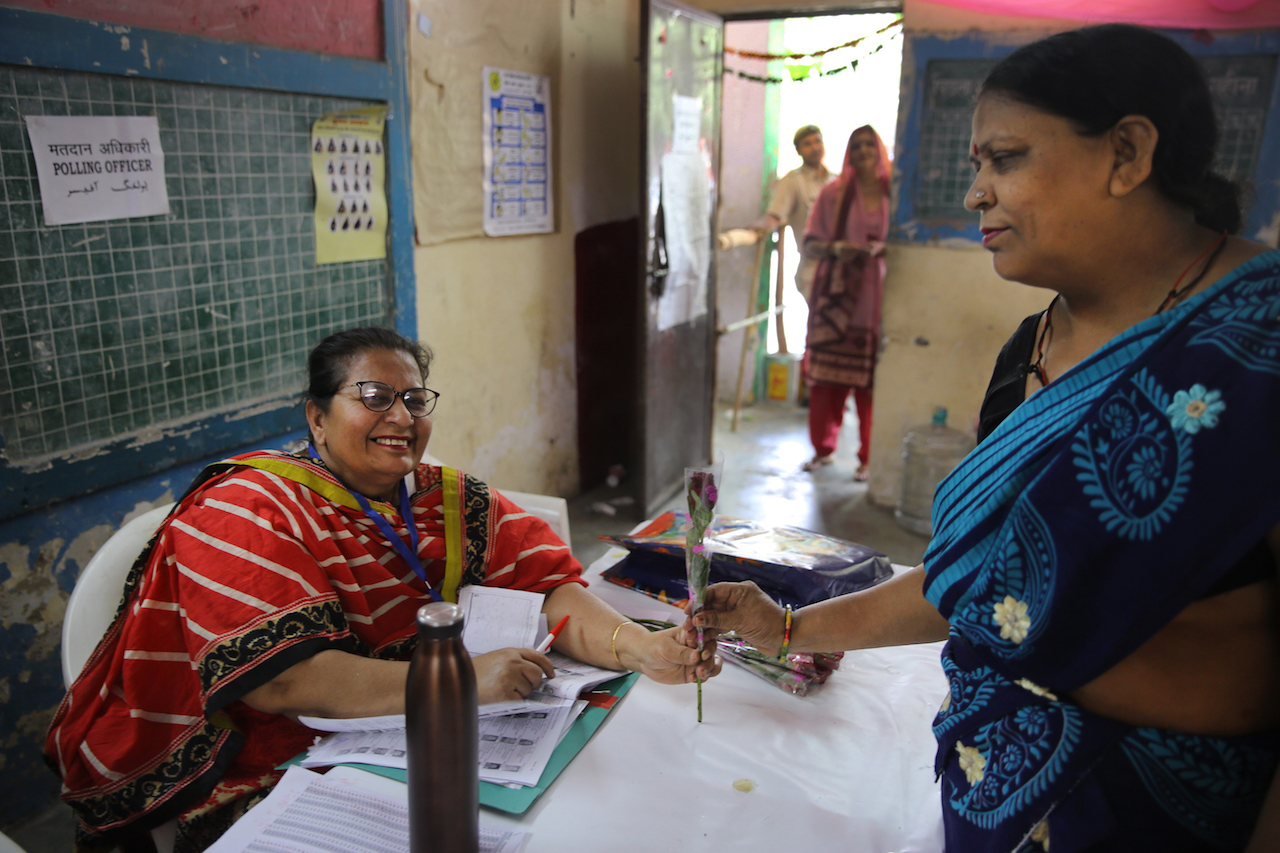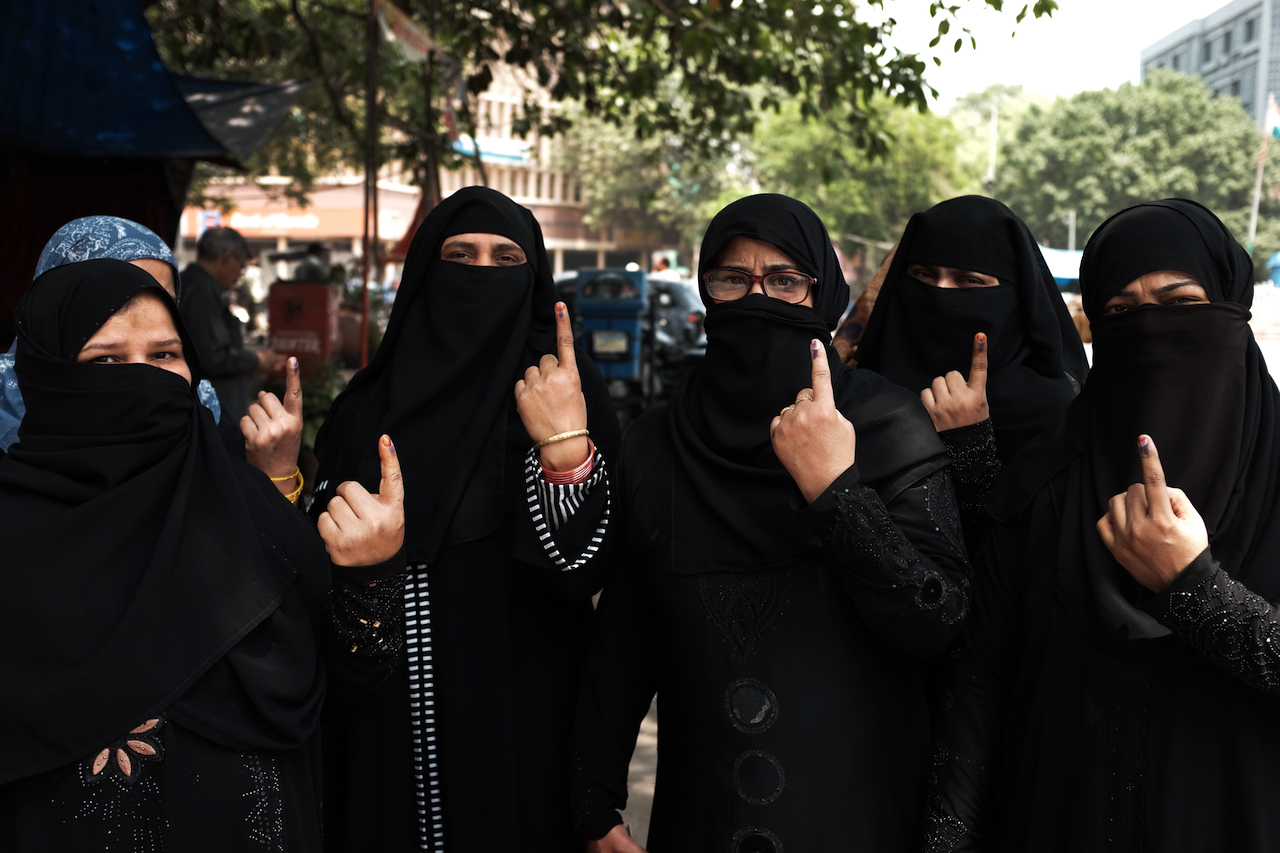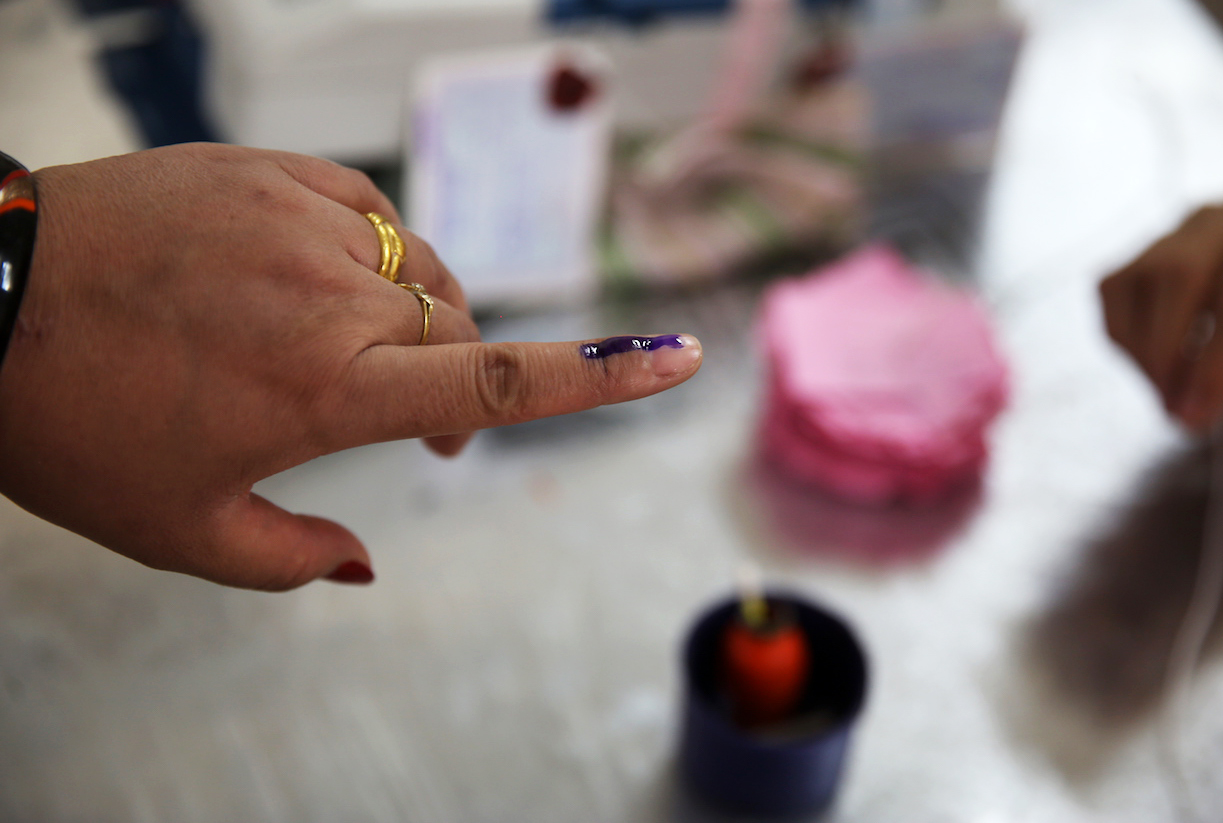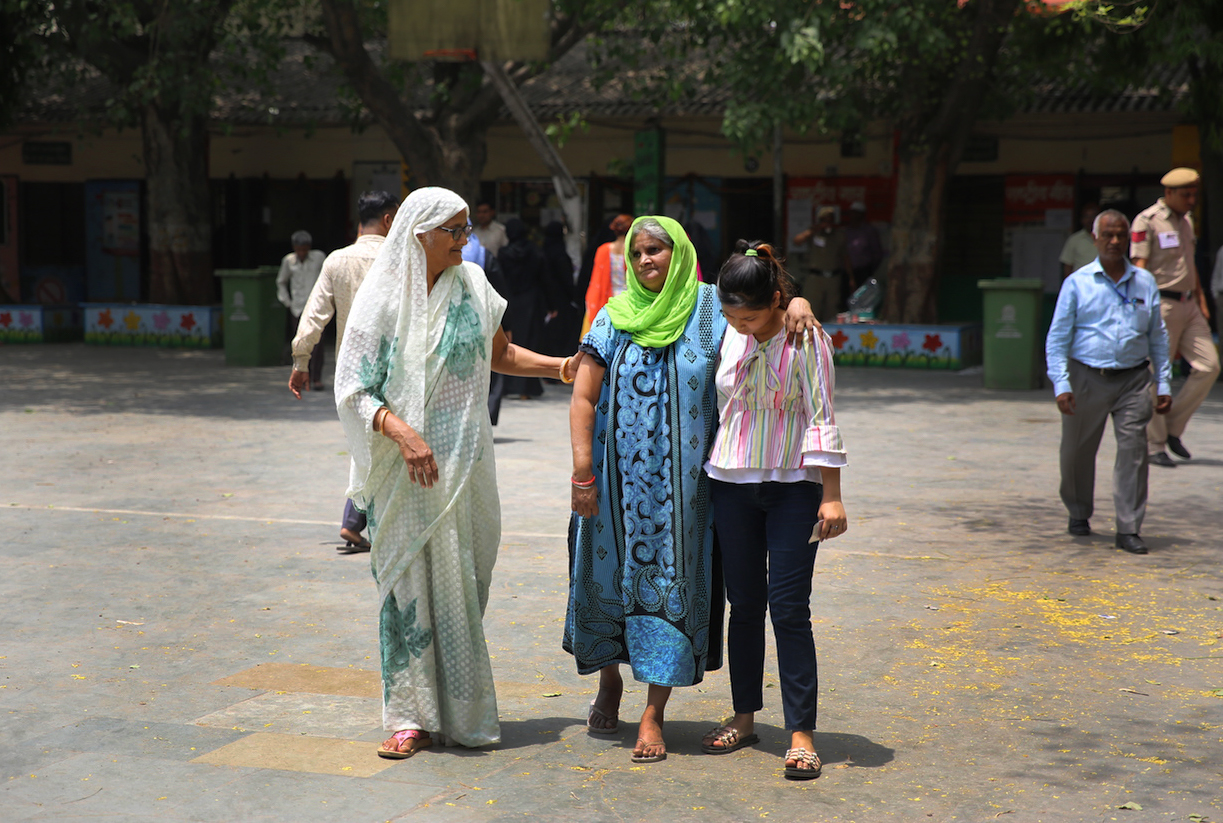It is 9 a.m. Sunita Adhikari wakes up with a start. She had taken half a day off to participate in the election process of the world’s largest democracy, and she is already running late. Her neighbours—most of whom have worked through the night just like her—are still sipping their morning tea, scattered on the doorsteps and staircases of the colony. They keep an eye out for the rare early-bird customers, who are yet to trickle in.
The neighbours do not share Sunita’s enthusiasm for voting. Their disdain for the political process is legitimate. Despite the area being situated almost in the heart of the national capital, not a single politician visited the residents this election season—there was no campaigning, sloganeering and celebrity faces. For this is brothel number 64 on Garstin Bastian Road (GB Road), New Delhi’s only red-light area, and its residents have long disappeared in the stained pages of its notorious history.
Videos by VICE
GB Road, or what is now known as Shradhanand Marg, falls under the Chandni Chowk constituency. The street is lined with hardware shops on the ground floor, and the dingy staircases next to them lead to a world within a world. And while the political powers-to-be completely ignored over 1,900 sex workers housed in these 89 cramped brothels, just a few blocks away, the Election Commission had set up a “Pink Booth”, supposedly to empower women.



As the country descended on the streets to vote during the various phases of polling, on May 12, the Delhi-NCR region welcomed 17 Pink Booths, set up to encourage women voters to vote. Armed with women staffers, including police officers, along with pink roses, pink stuffed toys, pink balloons and an all-pink decor, these booths were a first in Delhi NCR, a city notorious for being highly unsafe for women. On the day of voting, these “Nari Shakti (woman power)” booths drew more women voters, especially from the Muslim community. “The idea was to spread the message of ‘Nari Shakti’ in the society,” an official linked to the initiative told VICE.
“This is a great initiative. I read about these booths in the paper and while I have always been accompanied by a male member of the family, this time, women in the neighbourhood and I decided to come on our own, after getting free from the household chores,” said Zabira Bashir, a voter at the Zeenat Mahal Pink Booth under the Chandni Chowk constituency, where 718 voters were registered to vote. “More of these booths will definitely help as it is difficult to ask for assistance, in case it is needed, to any of the male officers. It gives us the confidence to be on our own.”


In Adhikari’s constituency, however, her peers are not impressed. “What is this talk of women empowerment? Why are we not a part of this? Does our profession stop us from getting treated like humans?” rues Sunita, originally from Nepal. “We and our children face a multitude of issues. Don’t our children deserve empowerment too?” Earlier, the All India Network of Sex Workers (AINSW) had come up with its own set of demands, which were not included in the manifesto of any of the parties.
While the issue of women empowerment has dominated the political landscape in the “Crime Capital“, the mood may have failed to reach the marginalised in the city. But Adhikari refuses to lose hope. She cast her vote at the Ajmeri Gate booth and expects that the new government will give them a voice and grant them their rights.



This elections, total of 13,816 polling stations were set up at 2,700 locations in Delhi, with 16,683 voters registered at the 17 pink booths, also with a model polling station in each of the 70 assembly constituencies. There were 14,316,453 voters on Delhi’s electoral roll, of whom 7,873,022 were men, 6,442,762 were women, and 669 belonged to the third gender.
And yet, an estimated 21 million women voters from all over the country remain missing.
Follow Cheena Kapoor on Twitter.

